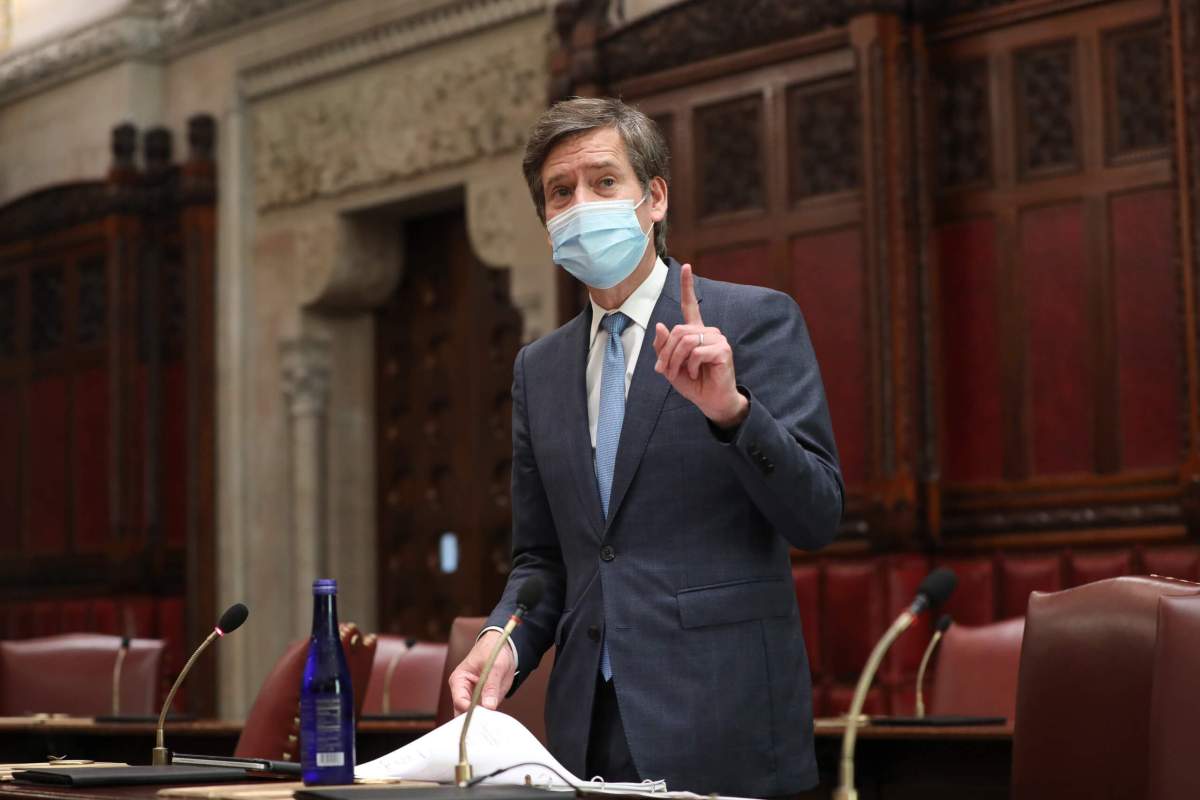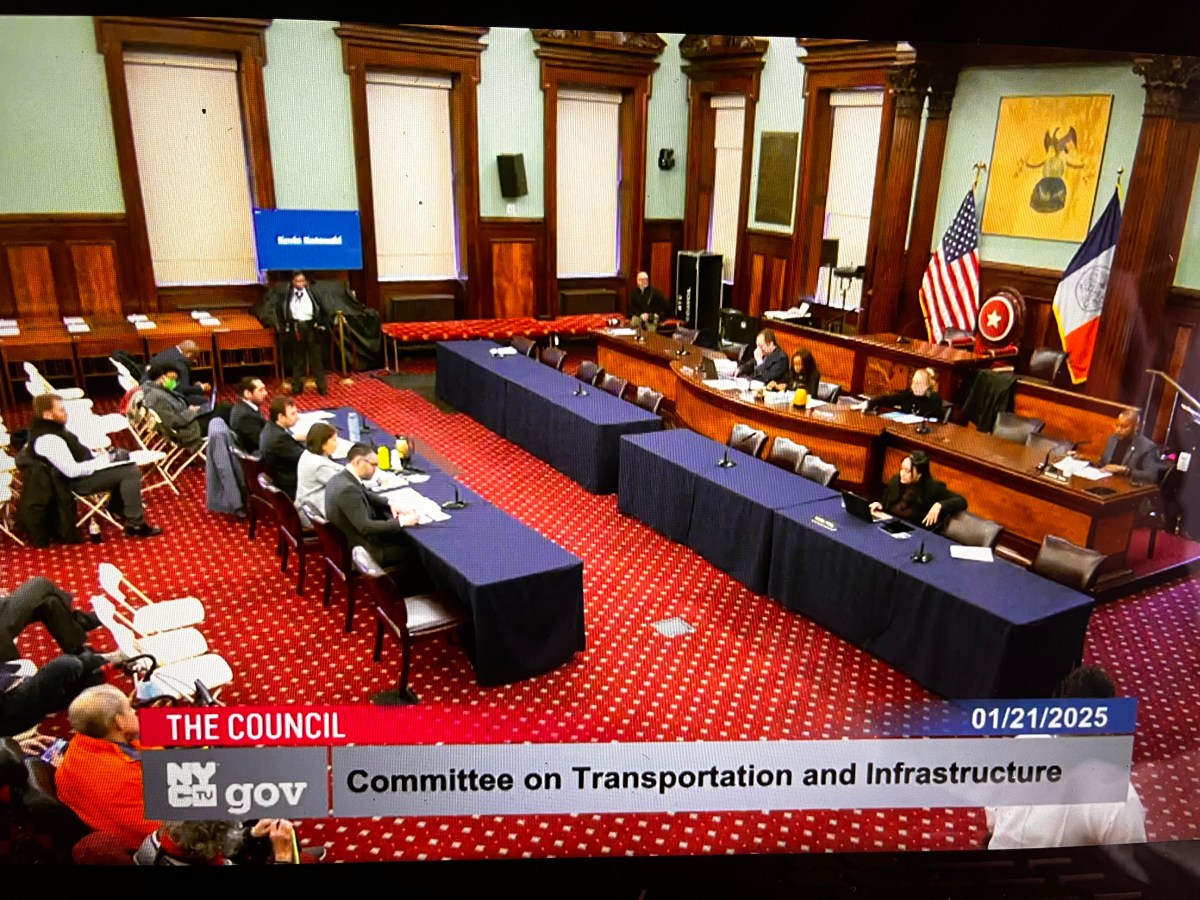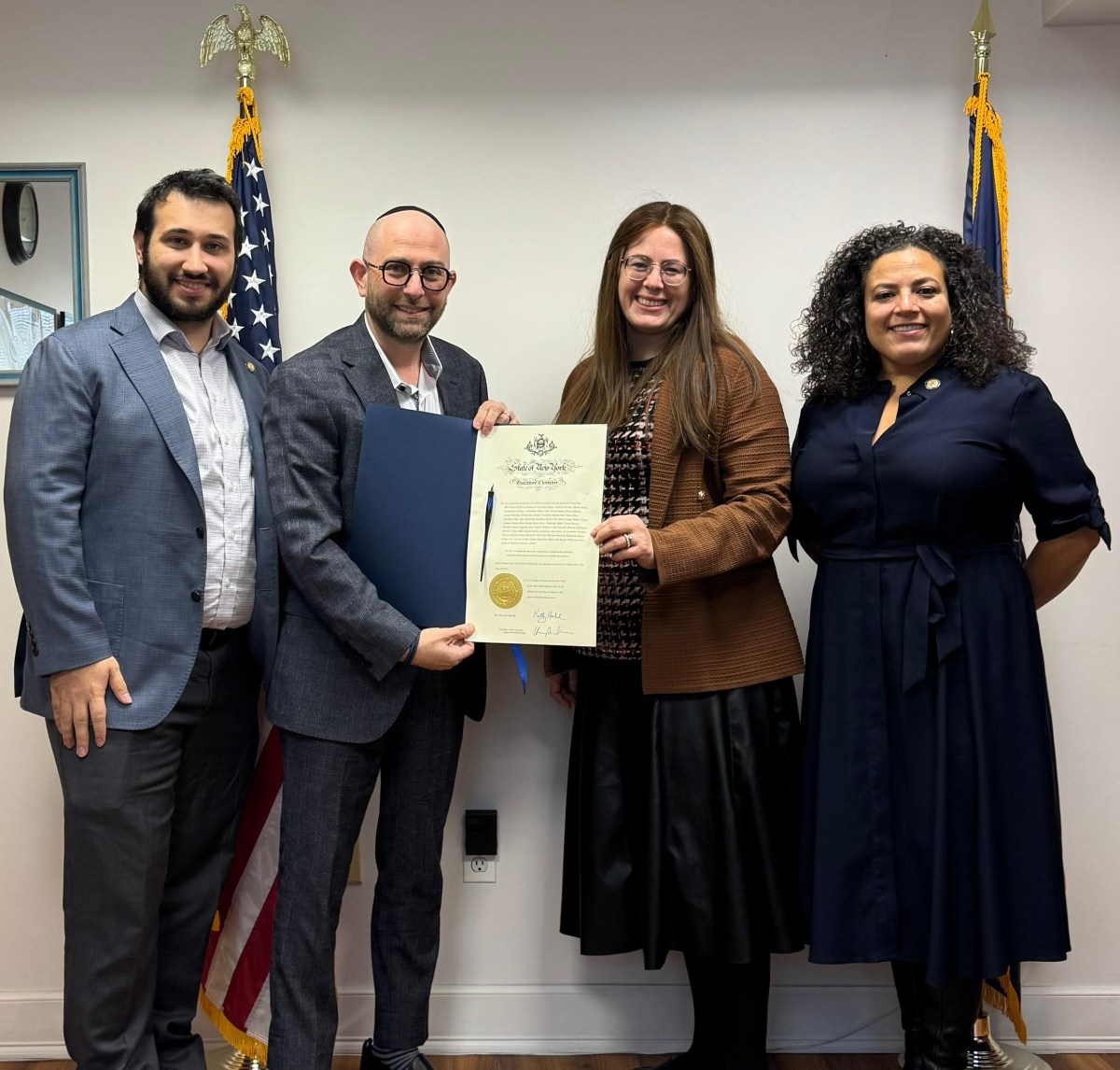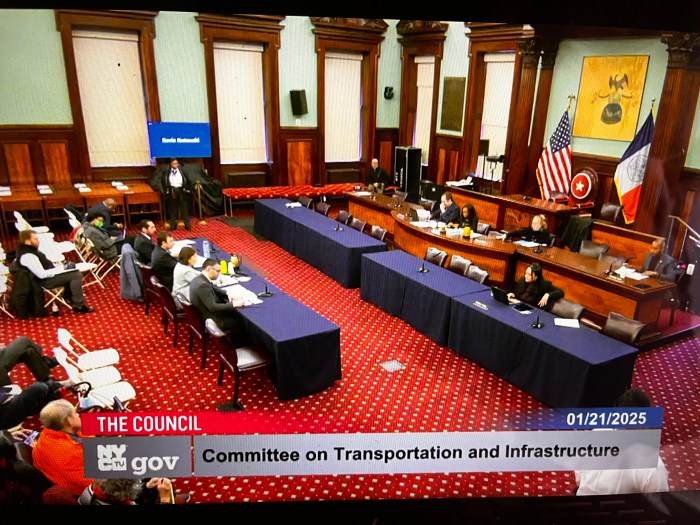This pol is not taking the Mayor’s scrap!
A day after Mayor Eric Adams published plans to halt the expansion of the city’s curbside organics program, a state lawmaker introduced a bill Thursday that requires the city to create a composting collection service for all New York City homes.
Manhattan state Senator Brad Hoylman’s Feb. 17 law would make the Big Apple provide food scrap pickups for every building with residential units, unlike the current program that is limited to only a few neighborhoods, and which still sends organic waste from most of the Five Boroughs to landfills.
“New York needs to make landscapes, not landfills,” Hoylman said in a statement. “Right now we’re letting all this waste go to waste, instead of composting it.”
If passed, the bill would give any city in the state with a population of one million or more — in other words, New York City — one year to establish the service.
The city would also have to start fining landlords and building managers who don’t comply with the program, according to the bill text.
Gotham’s current food scrap pickups restarted in the fall after a year-long hiatus due to COVID-19 budget cuts under Mayor Bill de Blasio, but the latest iteration is limited to largely wealthy neighborhoods in six community boards of Brooklyn, Manhattan, and the Bronx.
The Department of Sanitation had planned to roll out the scheme to more neighborhoods based on demand and signups by residents this year, but Mayor Adams’s preliminary budget proposal cuts funding for those efforts in order to save costs.
Adams claimed Thursday that he wants to scrap the plans so his team can come up with a better alternative, as the current program is still widely underused in the areas it’s available.
Organics make up more than 30% of the residential waste stream in New York City and when dumped in landfills the scraps can emit the harmful greenhouse gas methane, contributing to climate change.
Keeping the wetter and heavier food waste in latched brown bins also helps deter rats, noted one composting advocate.
“Setting organics aside into latching containers will reduce access to this food source for the City’s massive rat population, and will take our City one massive step closer to running in an environmentally responsible way,” said Meredith Danberg-Ficarelli, executive director of the group Common Ground Compost, in a statement.







































